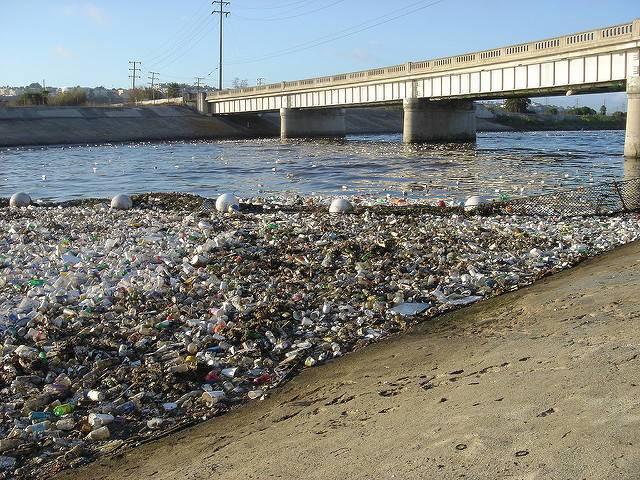
As many of us are still cleaning up and filling our recycling bins in the aftermath of the latest holiday, while preparing for yet another, Greenpeace offers a reminder that pollution from single-use plastic containers still poses a huge challenge – and in fact, the environmental group says three of the world’s largest beverage companies are the worst contributors to this ongoing problem.
Earlier this month, Greenpeace announced it had conducted audits of waste across 31 U.S. cities. As part of the global #breakfreefromplastic
And the three key offenders, concluded Greenpeace, are PepsiCo, Nestlé and Coca-Cola. According to the group’s activists, the results were remarkably consistent, no matter where the plastics were evaluated, from Miami to Long Island to Southern California.
“Companies like Pepsi, Nestlé, and Coca-Cola continue to pollute our communities, waterways, and oceans with single-use plastic that will never disappear,” said Greenpeace Oceans Campaigner Kate Melges in an emailed statement to TriplePundit. “For far too long, these companies have put the onus on consumers to deal with the plastic waste epidemic, but people across the country are starting to take a closer look at the plastic pollution in their local communities to put the responsibility back where it belongs -- on the corporations producing it.”
All three companies insist they are doing more to tackle both the surge in single-use plastic consumption and the corresponding lack of recycling to manage this stream of waste. Coca-Cola, for example, has confirmed that single-use plastic containers are taking up a larger portion of its global packaging; Greenpeace has claimed the results include the company being responsible for the manufacture of up to 110 billion bottles a year.
Meanwhile, PepsiCo announced earlier this year that it has joined the New Plastics Economy initiative, which is led by the Ellen MacArthur Foundation. Nestlé says it seeks to reduce its overall packaging consumption by 140,000 tons before the end of 2020.
Greenpeace, however, has concluded that those waste diversion efforts are not enough to stem the flow of plastic trash into the world’s oceans. The organization’s researchers say 90 percent of plastics produced worldwide are not recycled, and the amount of garbage that winds its way into the seas is the equivalent of one truckload a minute.
The environmental group has taken its argument against excessive plastic consumption a huge step further by claiming that plastics have become a human rights issue. Greenpeace's researchers have alleged that bottling companies are selling products in single-use plastic containers in countries that lack effective waste management systems. Furthermore, the plastic that ends up in landfills or incinerators that are often located close to low-income communities or those where the majority of residents are people of color.
Image credit: Plastic Polluting Coalition/Flickr

Leon Kaye has written for 3p since 2010 and become executive editor in 2018. His previous work includes writing for the Guardian as well as other online and print publications. In addition, he's worked in sales executive roles within technology and financial research companies, as well as for a public relations firm, for which he consulted with one of the globe’s leading sustainability initiatives. Currently living in Central California, he’s traveled to 70-plus countries and has lived and worked in South Korea, the United Arab Emirates and Uruguay.
Leon’s an alum of Fresno State, the University of Maryland, Baltimore County and the University of Southern California's Marshall Business School. He enjoys traveling abroad as well as exploring California’s Central Coast and the Sierra Nevadas.














